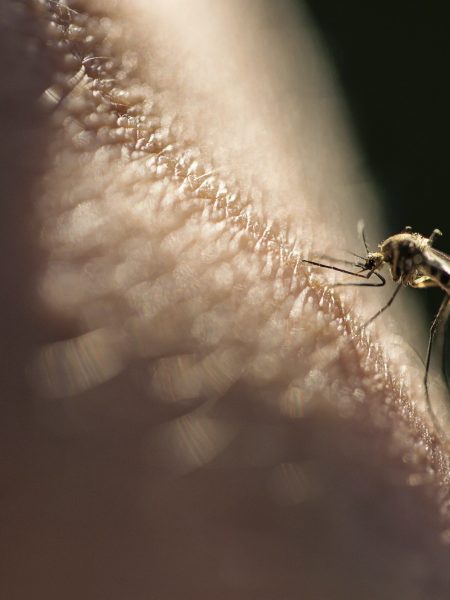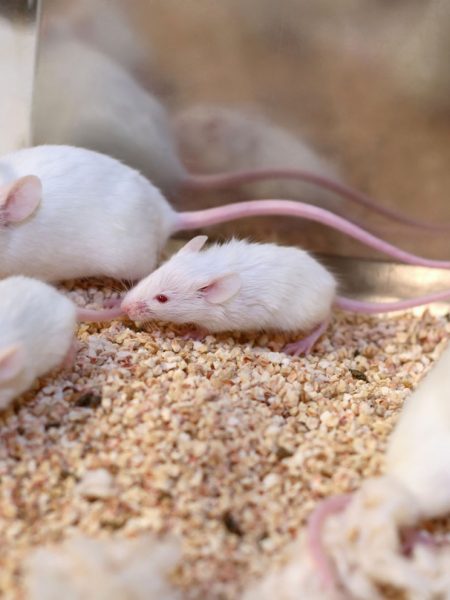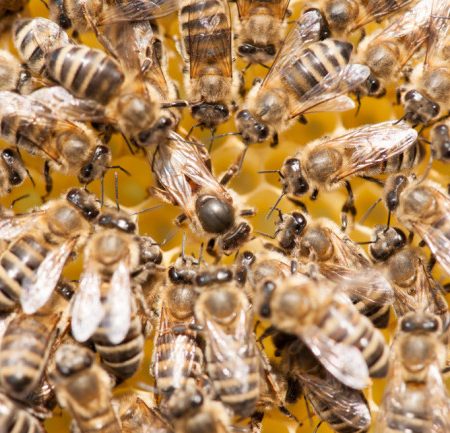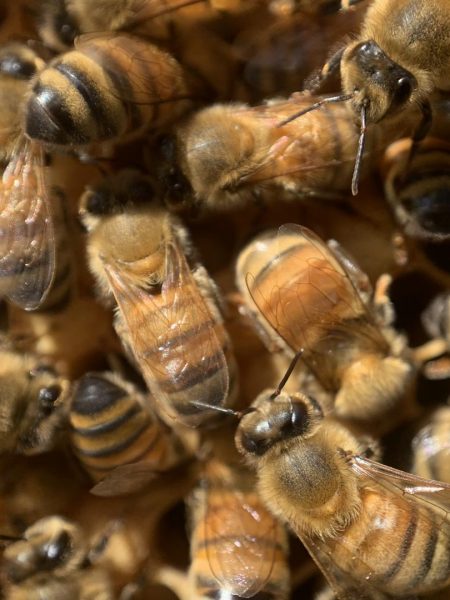We’re just starting to understand how smell can change human behavior. Unsplash
Scientists observed how people reacted to frustrating computer games in the presence and absence of the molecule, known as hexadecanal. Female players took more retaliatory action against their opponents while sniffing the chemical, while men showed the reverse pattern. The team also noted differences between how brain activity changed in men and women during exposure.
“This definitely needs to be replicated before it can be really fully accepted and generalized,” says Ashok Panigrahy, a professor of radiology, developmental biology, bioengineering, and bioinformatics at the University of Pittsburgh, who was not involved in the research. However, he says, “this study highlights the importance of smell, and how it relates to behavior.”
For most mammals, aggressive behavior is very sensitive to the effects of chemical signals. But little is known about how these processes work in humans, says Eva Mishor, a neuroscientist at the Weizmann Institute of Science in Rehovot, Israel and coauthor of the new findings.
To investigate whether hexadecanal might play a role in human aggression, Mishor and her colleagues ran several experiments in which volunteers played computer games with a mysterious partner. Unbeknownst to the players, this “partner” was actually a computer algorithm designed to provoke them.
In the first experiment, 67 men and 60 women were treated unfairly in a game that involved divvying up a small sum of money. The participants later had the opportunity to blast their uncooperative partner with a loud burst of noise, the volume of which they controlled. During the games, each participant wore a sticky pad pasted to their upper lip, half of which contained hexadecanal.
Women exposed to hexadecanal indulged in more severe noise blasts than women who weren’t exposed, she says, while men who were exposed to the chemical opted for less intense noise blasts than those who weren’t.
In both groups, a part of the brain called the left angular gyrus (which is involved in perceiving social cues) became activated during exposure to the chemical. However, a difference between the sexes emerged when the researchers examined how this region “talked” to other parts of the brain.
When men were exposed to hexadecanal, activity in the left angular gyrus became more synced with that in several other brain areas involved in processing social information and aggression: the temporal pole, amygdala, and orbitofrontal cortex. But in women, connectivity between the left angular gyrus and these other regions decreased during hexadecanal exposure.
Mishor and her colleagues offer one explanation for the differences in how women and men responded to hexadecanal. “Perhaps the one setting in which it could be highly beneficial to reduce male aggression and increase female aggression is the setting of infant-rearing,” she says.
In other species, Mishor and her team wrote, mother animals often direct their aggression at intruders while fathers and especially other males often behave aggressively toward the infants. Hexadecanal could give babies a tool to increase their odds of survival, they speculate.
“Our results imply that sniffing babies may increase aggression in mothers but decrease aggression in fathers,” the researchers concluded in the paper. However, they acknowledge, this explanation “remains to be experimentally verified, and here serves only as an example of possible ecological relevance for our results.”
A story of smell
The research also had several other important limitations. Mishor’s team didn’t measure how much hexadecanal humans actually emit, or how this amount differs between babies and adults. It’s not clear yet under what circumstances adults release hexadecanal or how much of this molecule is inhaled by other people. And although the researchers identified brain activity patterns associated with exposure to hexadecanal, they didn’t show that this activity was actually responsible for making people behave more or less belligerently.
The findings support the idea that hexadecanal is a pheromone, or substance that animals use to communicate with other members of their species. “The study moves us towards understanding how this chemical can affect human behavior,” says adds Royce Lee, an associate professor of psychiatry and behavioral neuroscience at the University of Chicago, who wasn’t involved in the research. “I wouldn’t go so far as to say that we know that this will affect parental behavior, or how we behave outside of the laboratory.”
It remains to be confirmed whether the sex difference that Mishor and her team observed would remain in future experiments with larger numbers of volunteers. More generally, claims on sex-based differences brain structure and activity have been shown to be largely unreliable, with recent research suggesting that our brains are individual “mosaics” of “female-typical and male-typical features.” “Nonetheless, Lee says, the results are “certainly very interesting and provocative.”
“One question is, does this give us some clues about what can reduce human aggression?” he says. “I could see one pathway in the future to study this chemical and to see if we can learn something about how to help with human aggressive behavior.”
Mishor, Lee, and Panigrahy all agree that the findings have implications for our understanding of the mysterious connection between the nose and brain.
The researchers focused on a very specific type of behavior in their experiments, raising the intriguing question of whether the chemical might be relevant for other kinds of social situations, notes Panigrahy, who is currently studying how olfaction influences social behavior in people who have congenital heart disease.
The findings may have particular resonance as the world continues to deal with COVID-19, which can impair people’s sense of smell, he says.
Source: A human pheromone could affect aggression | Popular Science

Viruses can change your scent to make you more attractive to mosquitoes, new research in mice finds | The Conversation










































